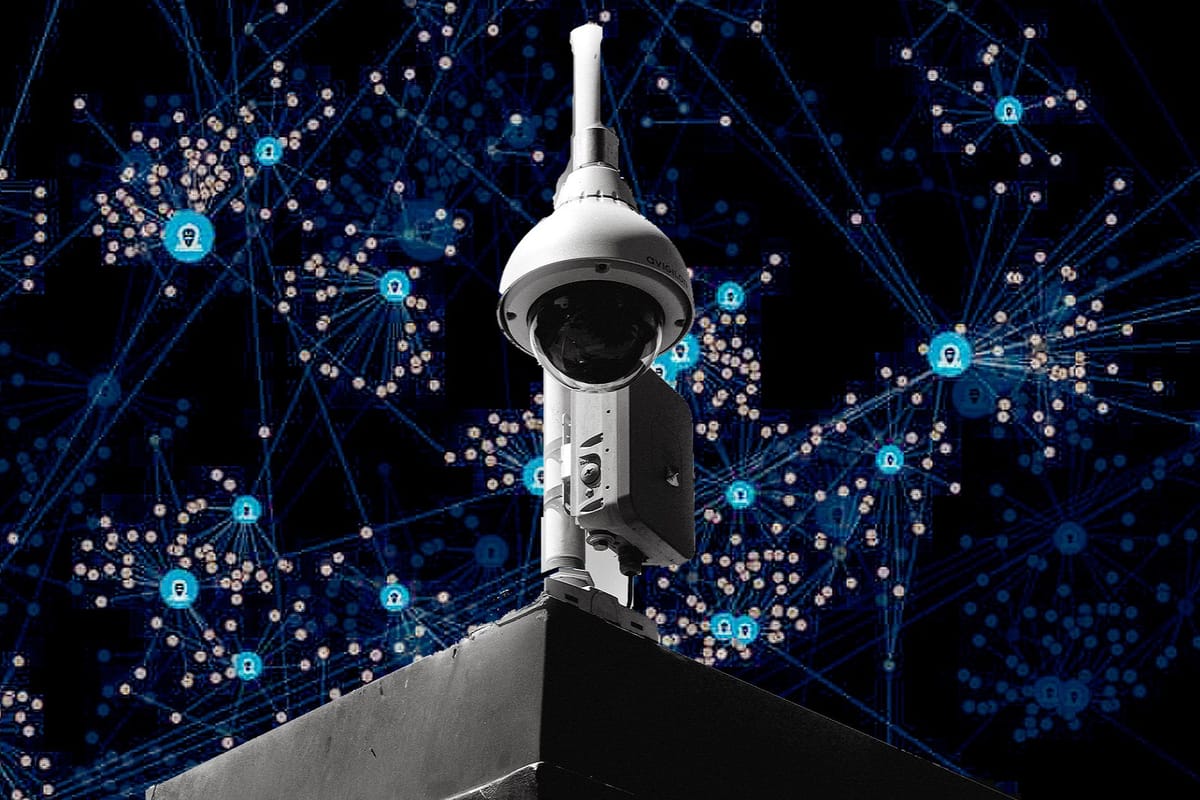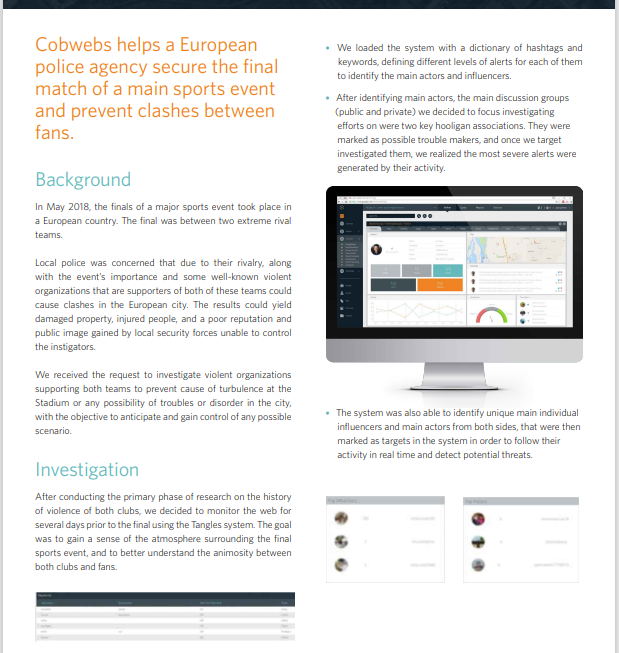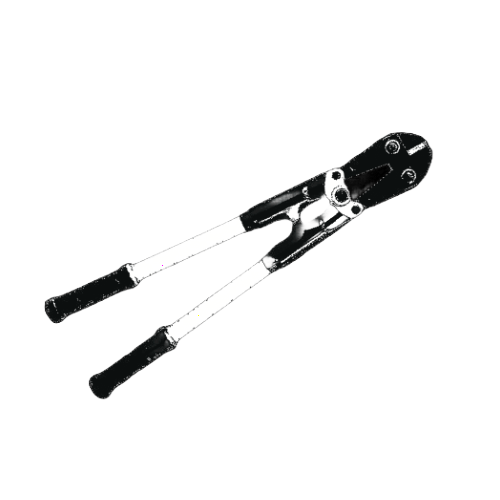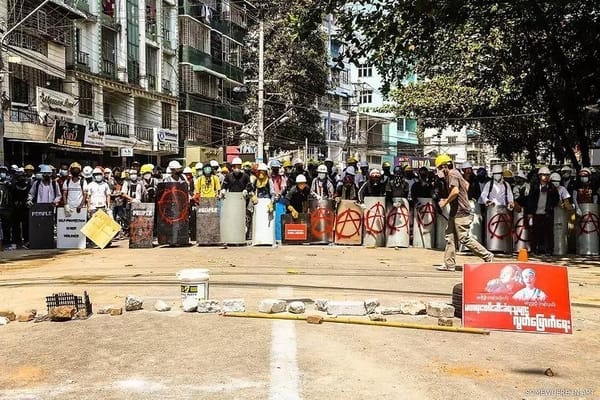The LAPD is (still) using Surveillance Software That Can Track Your Phone and Social Media.
Cobwebs Technologies, now Penlink Tangles, developed the software utilizing AI to track, surveil, and create profiles of individuals based on online and phone data.

The LAPD spends millions of dollars a year on surveillance technology to spy on you.
They can track your movements using automatic license plate readers, monitor and surveil your social media accounts, and search through troves of your anonymized online data harvested by data brokers.
It’s data-driven policing, and not a single part of your life, digital or physical, isn't accessible to police.
The LAPD presented its 2024 Annual Comprehensive Technology Report (CTR) at the Board of Police Commissioners meeting on Tuesday.
It outlines what each piece of technology does, its impact on privacy, and its effectiveness.
The internal reports the department produces, such as this one, are useless exercises in transparency and accountability. It's a way to legitimize their continued use of the tech and pretend they're transparent to the public.
The department will never admit in a report that the technology is ineffective or overly invasive to a person’s privacy.
This year's report says, "Everything works great, and your privacy or rights aren't being violated. Trust us!"
After investigating themselves, officers found that each piece of technology was, unsurprisingly, valuable and effective for them. They also found no negative impact on the public's privacy.
Sure! Whatever you say!
The department also stated that audits were conducted, but their results were not included in the report.
A public records request is required to review the results, but at the current rate of LAPD's record releases, you likely won't see it until next year.
A piece of technology included in the report is Penlink Tangles, formerly known as Cobwebs Technologies. I've written about it before for Knock LA, and since then, I've followed the technology over the past couple of years.
The LAPD undersold the technology's capabilities and its negative impact on the public's privacy.
Missing was any mention of its ability to create dossiers, track a person's IP address, and provide police with access to online data scraped from you anytime you're online. Since the data is publicly available through data brokers, a warrant isn't necessarily required.
As people continue to take to the streets against ICE, Penlink's Tangles, and other social media surveillance tools like it, will be among the first places police turn to when seeking to identify or track protesters. It's worth knowing what this specific tool is capable of when it's used in an investigation.
Walking through Cobwebs
Penlink Tangles, initially created by members of the Israeli special forces, scrapes personal data from online sources, including advertising data collected while browsing on your phone.
Both the Department of Homeland Security and Immigration and Customs Enforcement use it, spending millions of dollars to access the same data as LAPD.

The tech has also expanded to other departments in California thanks to a state grant aimed at fighting organized retail theft, a crime wave that the police and retailers made up in 2020 to get more funding and technology.
Rather than rehash what it does, I am re-publishing my original story about it from 2023.
I've also included the original records used for the story about Cobwebs, as well as records recently released to me. Click below and take a gander at them.
No paywall. No ads. No masters.
You can help me keep it that way by becoming a paid subscriber.
LAPD is (still) using Surveillance Software That Can Track Your Phone and Social Media
(This story was initially published for Knock LA in 2023 and mentioned in Vice.)
LAPD has bolstered its online surveillance operations by adding another piece of technology to its roster. LAPD’s newest surveillance partner, Cobwebs Technologies, gathers data from your phone and social media activity and turns it into intelligence. The Israeli company’s surveillance platform, which outsources much of its surveillance work to AI and machine learning, gives police warrantless access to your personal information.,
Cobwebs Technologies was founded in 2015 by former IDF special operatives Omri Timianker, Shay Attias, and former Mossad official Udi Levy. The company is part of the controversial billion-dollar surveillance industry in Israel, where the technology is often tested on Palestinians before being implemented elsewhere in the world. During a 2014 trip to Israel, LAPD’s top brass saw firsthand how Israel used drones, social media surveillance software, and automatic license plate readers. Within five years of the trip, the department would be using all three. This year, Cobwebs was acquired by private equity firm Spire Capital, which owns the surveillance companies GeoTime and PenLink. The company currently has several contracts with local and federal agencies, including the Texas Department of Public Safety (who use it to track migrants), the IRS, and the DHS.
The LAPD purchased the nearly $200,000-per-year subscription to the technology in 2022, with the help of a $600,000 Department of Homeland Security grant focused on terrorism prevention in urban areas. Part of the purchase was a suite of over 50 digital tools, including surveillance and investigative software built by other companies. In the grant proposal for the technology, LAPD stated that it would facilitate the sharing of intelligence with federal law enforcement agencies.
Meta, the company behind Facebook, Instagram, and WhatsApp, banned accounts used by Cobwebs and labeled it a surveillance-for-hire company. In a 2021 report, Meta found that Cobwebs was being used to target activists, opposition politicians, and government officials in Hong Kong and Mexico. The report pushes back against the surveillance company’s claims that it tracks only criminals and terrorists.
Social Media Monitoring and Data-Driven Profiling
It is not news that LAPD monitors your social media and surveils your online activity. It is also not news that your phone and computer are doing the same, sending you targeted ads based on the links you click and apps you use. Cobwebs can combine all of this data and turn it into intelligence for police with the help of two platforms: Tangles and Webloc.
Tangles is Cobwebs’ marquee platform. It uses AI and machine learning to automate its surveillance capabilities. The software’s AI continually searches, scrapes, and extracts information from the public’s online activity. This includes monitoring geotags of geographic locations, social media posts, and online communities, including those on the dark web.
Tangles allows police to create highly detailed dossiers on individuals, whether targeted by police or discovered by Cobwebs while scraping personal and online data. Per the company’s promotional material, the information it provides to police includes “locations, context, internal relations, group structures, [and] hierarchies,” as well as the influence of the target’s “social communities.” This data-driven profiling, as Cobwebs describes it, can infer a person’s social network, whether they are “likely perpetrators of violence,” and monitor changes in a person’s sentiment. Cobwebs says it can help police “prevent events before they occur.”
Cobwebs’ AI can also profile a person by using its deep image analysis to make “connections,” the company claims, that are “invisible to the naked eye.” The software scans photos and videos to find connections in people’s faces and intentions in text and labels within those photos, labeling anything it deems suspicious. Cobwebs doesn’t elaborate on what connections the software makes or how it can assert intentions from an image.
In a case study, Cobwebs demonstrated how the software could have been used to prevent the 2017 Alexandria shooting. The company pointed out that police missed the shooter's intentions in their social media posts, claiming their AI would have been aware of them: “It can take more than the human mind to comprehend complex situations, especially when it comes to taking available information into consideration within context.”
However, there can be real harm in police departments buying into artificial intelligence and predictive analysis technologies that may be nothing more than buzzwords. Dave Maass with the Electronic Frontier Foundation (EFF), a nonprofit organization dedicated to protecting civil liberties in the digital world, says that “when an algorithm ‘underperforms’ or ‘fails to meet expectations,’ that could mean that innocent people are being harmed by faulty technology.”
The use of data-driven policing software relies on a technology known to be rife with bias and inaccuracies. Multiple studies have shown that the algorithms used in AI predictive policing models are racist and inaccurate. Making matters worse are the shadowy algorithms and calculations used by Cobwebs. Since they’re proprietary, they’re not accessible to the public, making it difficult to independently review them for bias or the use of flawed data.
LAPD has previously used technology for predictive policing, including both Palantir and PredPol, which has led to the over-policing of Black and brown communities in Los Angeles. Their marquee predictive policing program to reduce gun violence, Operation Laser, was shut down in 2019 after internal audits found inconsistencies in its use. The department now employs “data-informed community-focused policing,” which activists and community organizers have noted is essentially predictive policing by another name.
I was paid $250 for that story.
If you appreciate my work or any of my other efforts, you can buy me a coffee, a Diet Coke, or cover a handful of public records requests.






